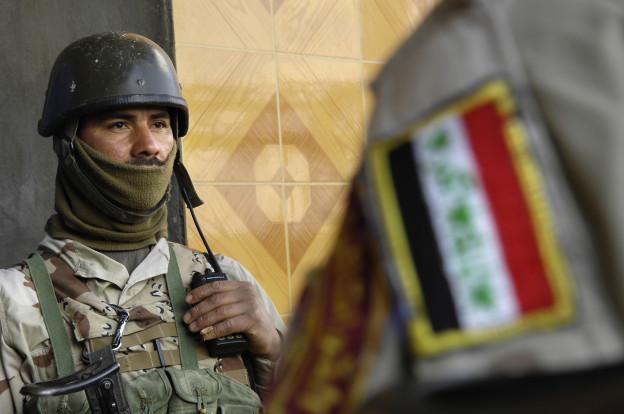In the labyrinthine corridors of history, the interplay of sectarian divisions has consistently cast a long shadow over the rich tapestry of human civilization, particularly in the Middle Eastern crucible of Iraq and Syria. The Baha’i teachings, with their emphasis on the oneness of humanity and the innate potential for unity, offer a refreshing lens through which to examine this enduring conflict. This article seeks to elucidate the Baha’i perspective on the sectarian divide in these tumultuous countries, delineating the socio-political landscape while emphasizing the transformative potential of Baha’i principles in reconciling differences.
The sectarian divide in Iraq and Syria is not merely a geographical delineation but rather a profound schism rooted in centuries of historical grievances, cultural differences, and ideological rifts. In Iraq, the narrative has often been framed as a Sunni-Shia dichotomy, a familial feud that has escalated into open conflict, exacerbated by external interference and internal power struggles. Similarly, in Syria, the eruption of civil discord has exposed fault lines along sectarian lines, with communities trapped in an unending cycle of mistrust and animosity.
At the heart of Baha’i teachings lies the profound assertion of the oneness of humanity, a principle that resonates deeply in a world fragmented by sectarian identities. The Baha’i Faith posits that all human beings are members of a single family, advocating for the dissolution of artificial barriers that segregate communities and foster animosity. This perspective invites individuals to transcend their ethnocentric worldviews, recognizing the shared values inherent in diverse cultures and traditions.
The metaphor of the human body serves as a poignant illustration of this concept. Just as the body thrives through the harmonious interplay of its various organs, so too can society prosper through the unity of its diverse constituents. Each sect, or tribe, can be likened to an organ with its unique function; when functioning in concert with others, the entire body of humanity grows resilient and vibrant. Conversely, when discord arises, the body suffers, illustrating the imperative of working towards unity.
To address the sectarian divide, Baha’is advocate for a series of steps aimed at fostering understanding and collaboration among fractured communities. Central to this discourse is the promotion of education—a powerful tool for nurturing empathy and respect among individuals of diverse backgrounds. Educational initiatives that highlight shared histories and interdependencies can serve to dismantle the misconceptions that fuel animosity. Engaging in cross-cultural dialogue can catalyze a shift from a narrative of “us versus them” to one of collective responsibility and cooperation.
Furthermore, the Baha’i teachings emphasize the significance of justice and equity, particularly in the context of governance. The Baha’i principle of consultative decision-making enables collective deliberation that is inclusive and participatory, paving the way for policies that honor the rights and dignities of all community members. In the fractured political landscapes of Iraq and Syria, where governmental structures often favor sectarian loyalty over public welfare, the integration of Baha’i principles can lead to a more equitable society.
Moreover, Baha’is promote the idea of service as a fundamental tenet of personal and community development. Acts of service—regardless of to whom they are directed—serve to bridge divides and foster a spirit of cooperation. In areas ravaged by sectarian violence, community service projects that bring together individuals from different sects can act as powerful catalysts for unity. Such endeavors transform strangers into allies, nurturing relationships built on mutual respect and shared purpose.
Crucially, Baha’i teachings underscore the importance of spiritual transformation as foundational for any societal change. The sectarian divide in Iraq and Syria is a manifestation of deeper spiritual maladies—self-centeredness, prejudice, and an inability to see past one’s own interests. Through prayer, reflection, and commitment to spiritual development, individuals can cultivate virtues such as compassion, forgiveness, and understanding. These virtues become integral to creating a more harmonious society.
In today’s interconnected world, where sectarianism threatens to unravel the very fabric of societies, the Baha’i perspective offers a compelling call to action. By framing the resolution of conflict not merely as a political endeavor but as a profound spiritual journey, the Baha’i teachings provide a transformative approach to healing the divides that plague Iraq and Syria. This vision is not merely aspirational; it is grounded in lived experiences of individuals who have embraced these teachings amid adversity.
In conclusion, the sectarian divide in Iraq and Syria—seen through the prism of Baha’i teachings—reveals not just the depths of human discord but also the heights of human potential. The allure of unity beckons individuals from all walks of life to rise above the tumult, fostering a society where diversity is celebrated rather than feared. Baha’is envision a future where love, understanding, and collaboration redefine the narratives of communities long ensnared in conflict. In this vision, humanity progresses toward a collective destiny rooted in peace, fostering the emergence of a new world order where sectarian divides dissolve in the light of shared aspirations.
